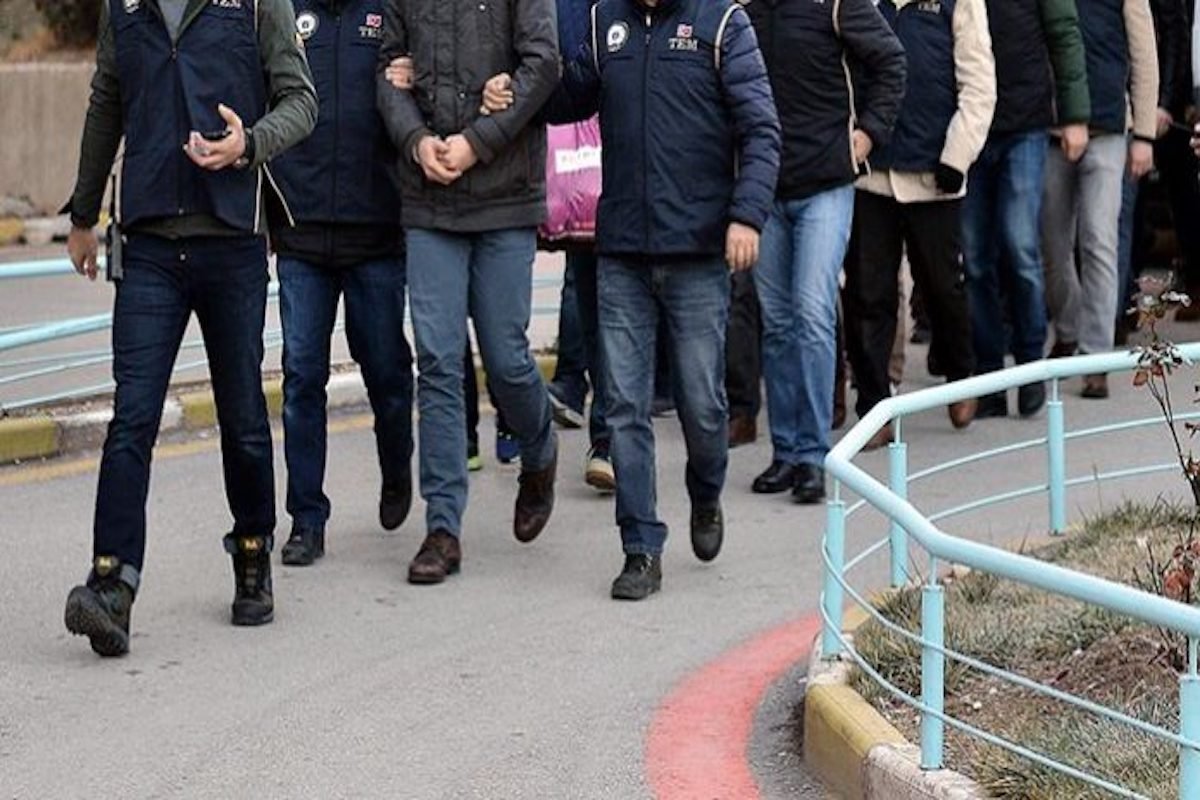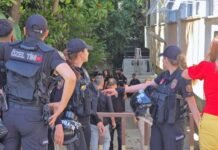The Turkish government issued detention warrants for 87 people across Turkey on Friday as part of its massive post-coup witch hunt targeting alleged members of the Gülen movement.
According to reports by Turkey’s state-run Anadolu news agency (AA) and the pro-government İhlas news agency (İHA), the chief public prosecutors’ offices in Turkey’s Çankırı, Erzincan, İstanbul and Ankara provinces on Friday issued detention warrants for 87 people, including military officers, lawyers and former employees of the state-run TRT, over their alleged links to the Gülen movement.
The İstanbul Chief Public Prosecutor’s Office issued detention warrants for 38 people as part of a probe into the Gülen movement. Police launched a nationwide operation in order to apprehend these people, including 13 lawyers, over their alleged affiliation with the movement.
The Turkish government has arrested 580 lawyers, prosecuted 1,539 lawyers and sentenced 102 lawyers to long-term imprisonment since the controversial military coup attempt on July 15, 2016.
Meanwhile, the Ankara Chief Public Prosecutor’s Office issued detention warrants for 20 former employees of state-run broadcaster TRT on the same charges. These people are being sought in the provinces of Ankara, Adana, Adıyaman, Hatay and İstanbul.
Also on Friday, 13 people, including a former deputy governor of southern Antalya province, were convicted over their alleged links to the Gülen movement and given various jail terms on April 6.
In seven different cases in Ankara in connection with a case concerning questions allegedly leaked ahead of the 2010 public personnel selection exam, four people were given six years, three months in prison. Two received three years, one month in prison. They were also ordered to pay a fine for allegedly committing fraud against state institutions.
In a case in Antalya, former Antalya Deputy Governor Bilal Çelik was handed down seven years, six months for alleged “membership in an armed terrorist organization.”
Separately, in the Black Sea province of Rize, five people were given prison sentence of three years, five months for allegedly “being members of an armed terrorist organisation and helping the organisation.”
In the eastern province of Erzurum, a person who was tried on the charge of being an administrator of the Gülen movement’s alleged prison and judiciary structure received a term of 15 years in prison for allegedly “establishing or managing an armed terrorist organisation.”
Furthermore, a person was given seven years, six months for alleged “membership in an armed terrorist organisation.”
Also, a person who was tried in western Kırklareli province for allegedly being part of the Gülen movement’s “tradesmen structure” was sentenced to six years, three months for alleged “membership in an armed terrorist organisation.”
Meanwhile, 780 luxury cars seized from 1,019 companies across 43 provinces due to their alleged links to the Gülen movement in the aftermath of a controversial coup attempt on July 15, 2016 have been sold at prices lower than their value, according to the Sözcü daily.
The cars were sold at auction by Turkey’s state-run Savings Deposit Insurance Fund (TMSF), which took over the companies. There was a huge demand for the luxury cars, which were all Audis and were priced between TL 139,000 and TL 330,000. The cars were sold at 30 percent lower than their market value.
Out of the 780 Audis, 101 were Q3, Q5 and Q7 jeeps that had a market value ranging between TL 330,000 and TL 700,000. All the cars have been sold. The TMSF has TL 30,9 billion in its reserves thanks to the assets of the seized companies.
The government has been confiscating the private property of non-loyalist businesspeople without due process on unsubstantiated charges of terrorist links. The companies are alleged to be connected to the Gülen movement, with the government coining the term “FETÖ” to designate the movement a terrorist organization.
The government’s crackdown against the movement, however, is not limited to the period following the coup attempt since the administrations of many organizations affiliated with the movement have already been seized by the TMSF over the course of the past three years. More than 1,100 companies with a total value of $12 billion in assets have been seized and then transferred to the TMSF since the coup attempt.
Turkey survived a controversial military coup attempt on July 15, 2016 that killed 249 people. Immediately after the putsch, the Justice and Development Party (AKP) government along with autocratic President Recep Tayyip Erdoğan pinned the blame on the Gülen movement.
Fethullah Gülen, who inspired the movement, strongly denied having any role in the failed coup and called for an international investigation into it, but President Erdoğan — calling the coup attempt “a gift from God” — and the government initiated a widespread purge aimed at cleansing sympathizers of the movement from within state institutions, dehumanizing its popular figures and putting them in custody.
Turkey has suspended or dismissed more than 150,000 judges, teachers, police and other civil servants since July 2016. Turkey’s interior minister announced on December 12, 2017 that 55,665 people have been arrested. On December 13, the Justice Ministry announced that 169,013 people have been the subject of legal proceedings on coup charges since the failed coup.
A total of 48,305 people were arrested by courts across Turkey in 2017 over their alleged links to the Gülen movement, Interior Minister Süleyman Soylu said on Dec. 2, 2017. “The number of detentions is nearly three times higher,” Soylu told a security meeting in İstanbul and claimed that “even these figures are not enough to reveal the severity of the issue.”















